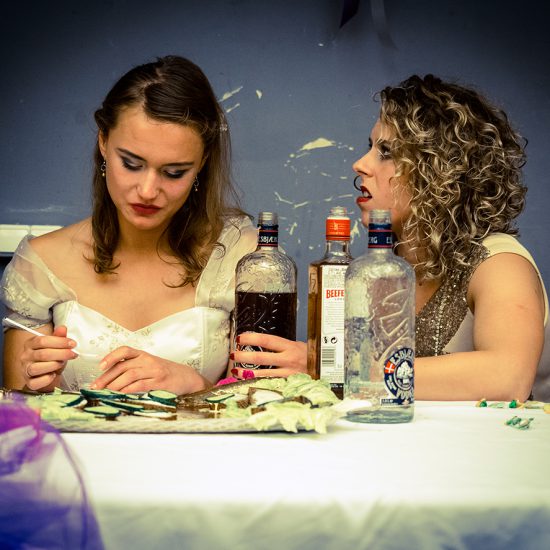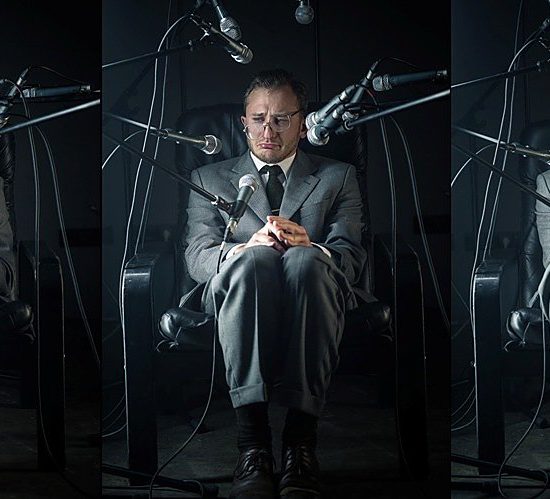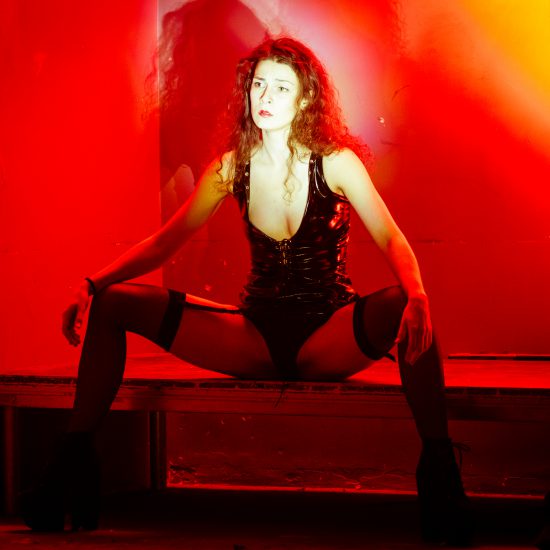The comic stroll along the first circle of hell
I guess there is nothing more pleasant than to watch the new generation of the theatre artists embracing the work of Anton Chekhov. They courageously seize something like “the Seagull”, and they think they just analyse, deconstruct and interpret it. Meanwhile we face the act of total penetration, but the penetrator leaving the seeds under the young skins is namely the playwright, cunning more young and talented people to ride the hellish Chekhovian roller-coaster.
There were some radically beautiful and meaningful, painful and heart-breaking, soul-shaking moments in the opening shows of Jokūbas Brazys’ „Seagull“. I would say, these artists are extremely talented in loving, torturing both themselves and others and admiring their own characters.
While advertising the new production of Brazys, the theatre urgently compared and made parallels between the interpretations of the same Chekhov’s work by the pupil Jokūbas Brazys and his teacher Oskaras Koršunovas. However I feel free not to compare them. “The Seagull” by Koršunovas has already happened, the performance which is still being shown is already a part of Lithuanian theatre history, meanwhile “the Seagull” of Brazys itself creates this history at the moment, allowing us to clearly grasp the origins of the most pressing experiences of our times. My impressions from the new production of the OKT remind of the state of infinite torment in the eternal separation from God, or really the most tangible war hell of the early May. The main and most valuable soul sought after by the bunch of demons and especially by the charming wide-eyed devil by the name of Nina is of course Konstantin Treplev. However, ourselves are not less important in this first staging of Kostya’s play, which is adapted for the innovative homestead summer theatre.
In the beginning of the show, Medvedenka (Karolis Norvilas) tries to manage Masha (Digna Kulionytė), and Masha, the pretty eccentric with a huge stack of curly hair, tries to manage him, the clumsy good-willed contemporary intellectual. The picture imitating the coitus is ruptured by the intervening Konstantin. The audience is what he aims at during his maximally open and honest monologue. The beginning of the show directed by Brazys alluded to the classical interpretation of the Seagull: what the spectator sees on the stage is the absolutely recognizable piece of reality containing the meaninglessness, boredom and total weariness of this life. But then Treplev, played by Domantas Starkauskas, enters the stage – and somehow hope and life is reborn again. The hope to see changes, sincerity, a raw nerve, sensitivity, openness for life and fresh blood. The life of sincere, sensitive performance of ultimate devotion. And, as in the worst nightmare, everything that is full of love, goodness and generation, everything that gave hope is finally condemned for end, self-destruction, death. The more precise diagnosis of the contemporary state is impossible to make.
The older generation exhausted of love, the youth using love as a gun against their closest relatives, an infinite desire to “fuck” anything that moves, but first of all one’s father and mother, Chekhov sounding pure as Shakespeare – these peculiarities of the Seagull are what is striking mostly. At one moment there were ten enraged Hamlets wishing to explode the small OKT theatre hall of experiments. There is still the eleventh Hamlet, calm and concentrated, waiting for our judgement by the wall near the control panel desk, beneath all the spectators. “Freedom is a cross, but only while carrying it one may spread his or her wings,” the director Brazys told before the opening of “the Seagull”.



